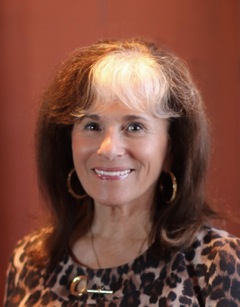A Quote by Anna Quindlen
There's a certain kind of conversation you have from time to time at parties in New York about a new book. The word "banal" sometimes rears its by-now banal head; you say "underedited," I say "derivative." The conversation goes around and around various literary criticisms, and by the time it moves on one thing is clear: No one read the book; we just read the reviews.
Related Quotes
As a historically voracious reader - pre-baby, I averaged a book every week or two, and when I was a kid, I'd routinely read a book a day - I never understood how some people could not read. When I heard people say they didn't have time to read, in my head, I simultaneously pitied and ridiculed them: there was always time to read.
I doubt if I shall ever have time to read the book again -- there are too many new ones coming out all the time which I want to read. Yet an old book has something for me which no new book can ever have -- for at every reading the memories and atmosphere of other readings come back and I am reading old years as well as an old book.
In a New York Post interview, Judy Blume, author of young-adult fiction, gave this advice on getting your kids to read: "Moms come up to me at book signings and describe how they're telling their daughters, 'These were my favorite books,'?" she says. "I say, 'Quit it! That's the biggest turnoff!'"You want to get them to read them, leave them around the house and every so often, say, 'You're not ready to read this yet.'
A travel book is a book that puts you in the shoes of the traveler, and it's usually a book about having a very bad time, having a miserable time, even better. You don't want to read a book about someone having a great time in the South of France, eating and drinking and falling in love. What you want to read is a book about a guy going through the jungle, going through the arctic snow, having a terrible time trying to cross the Sahara, and solving problems as they go.
I'd say the purest experience for the movie is not to have read the book because I think when you've read the book you're just ticking off boxes. I think that after you see the movie, reading the book is a cool thing. I always say the movie's not meant to replace the book. That's ridiculous. I'm a huge fan of the book.
Literary men now routinely tell their readers about their divorces. One literary man who reviews books wrote, in reviewing a study of Ruskin, that he had never read a book by Ruskin but that the study confirmed him in his belief that he didn't want to read a book by Ruskin. This man very often writes about his family life.
Who reads short stories? one is asked, and I like to think that they are read by men and women in the dentist's office, waiting to be called to the chair; they are read on transcontinental plane trips instead of watching banal and vulgar films spin out the time between our coasts; they are read by discerning and well-informed men and women who seem to feel that narrative fiction can contribute to our understanding of one another and the sometimes bewildering world around us.
I never need to find time to read. When people say to me, ‘Oh, yeah, I love reading. I would love to read, but I just don’t have time,’ I’m thinking, ‘How can you not have time?’ I read when I’m drying my hair. I read in the bath. I read when I’m sitting in the bathroom. Pretty much anywhere I can do the job one-handed, I read.
I read reviews and consider myself pretty 'plugged in' to the literary cosmos, yet one of the things I love best about book-touring is the opportunity to compare notes with favorite booksellers around the country. I always come home with books by authors I'd never heard of - or books I've read about but didn't realize I might love.

































